Being their own boss
SINGAPORE — Mr Peter Goh and his co-founders started their business, Chloros Solutions, after spotting a gap in the market, while 8 Fahrenheit’s Mr Tan Song Jie wanted to help financially disadvantaged students, having come from a similar background. For founders of 90s — The Candy Studio, a partnership between their school and Bugis Street Management gave them the opportunity to kick-start their social enterprise.
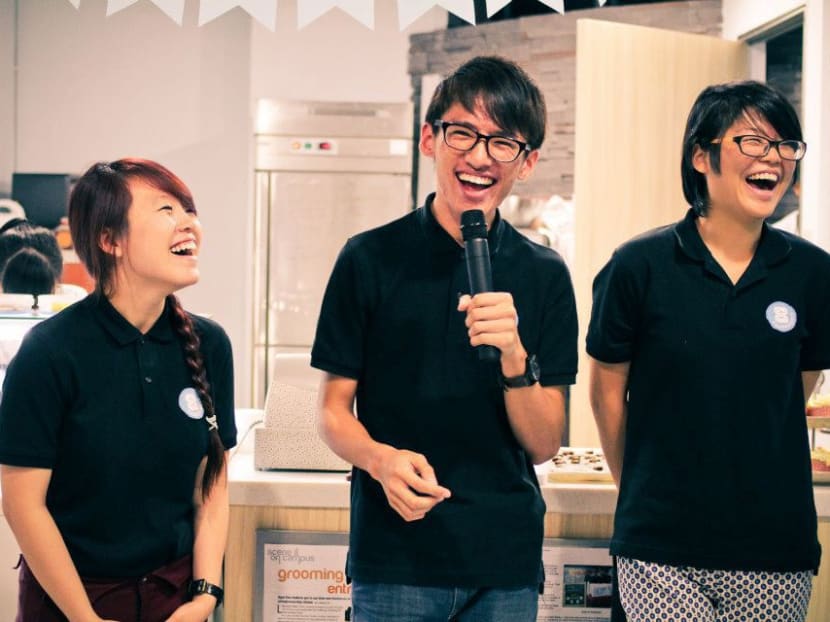
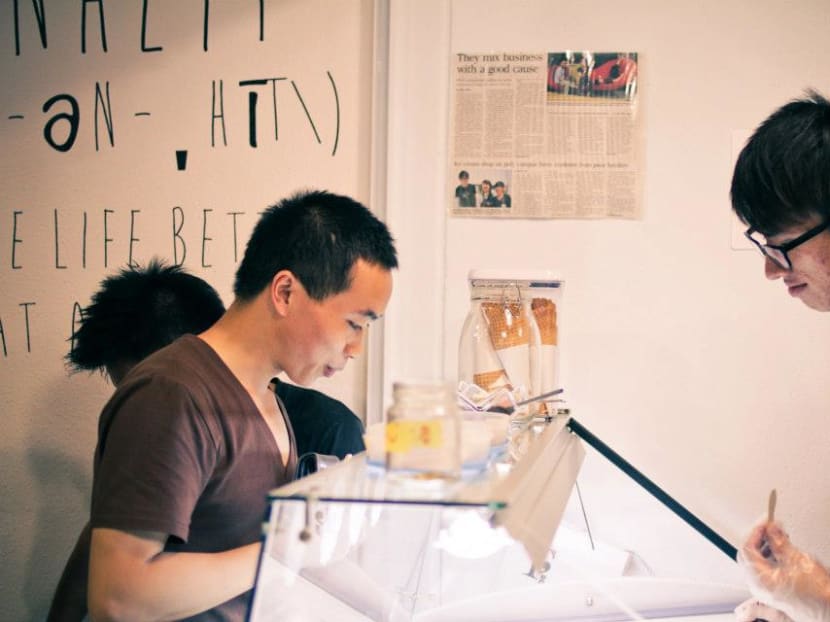

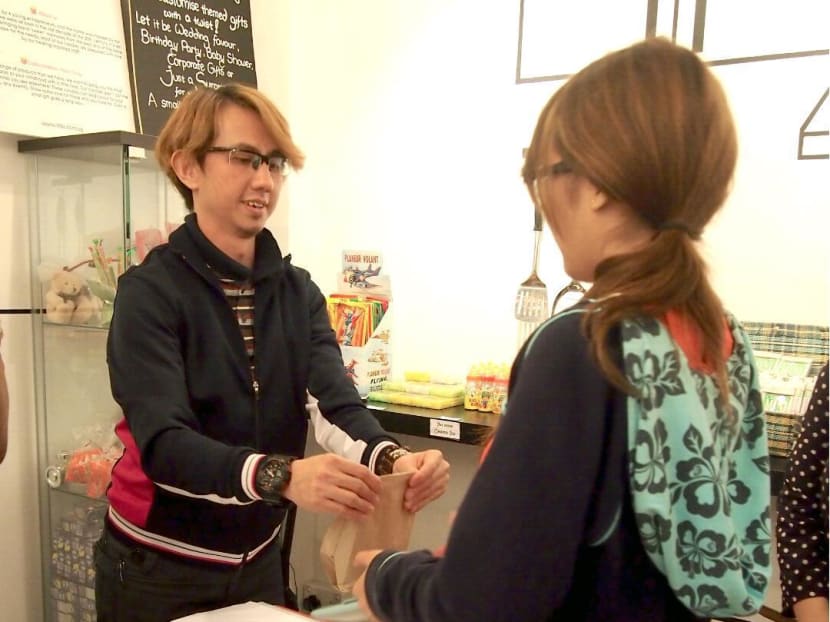
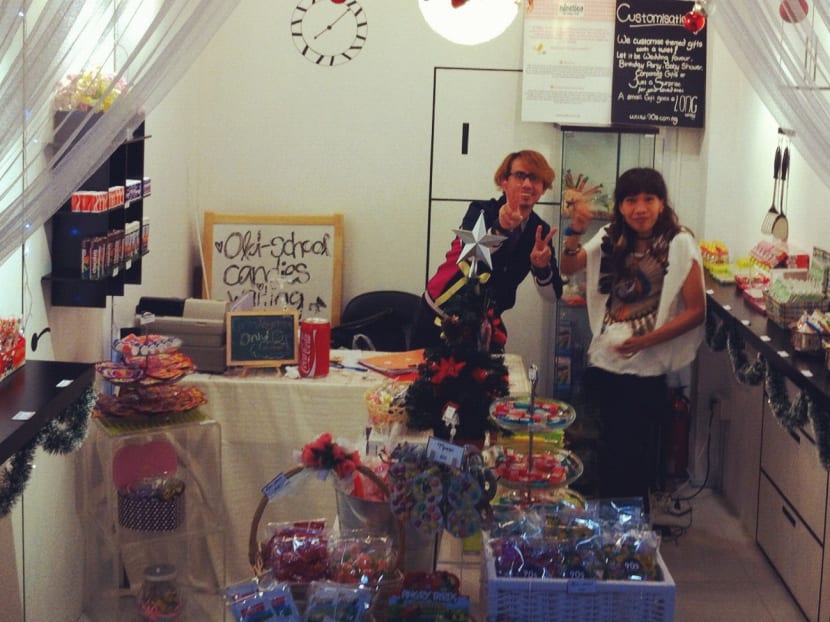
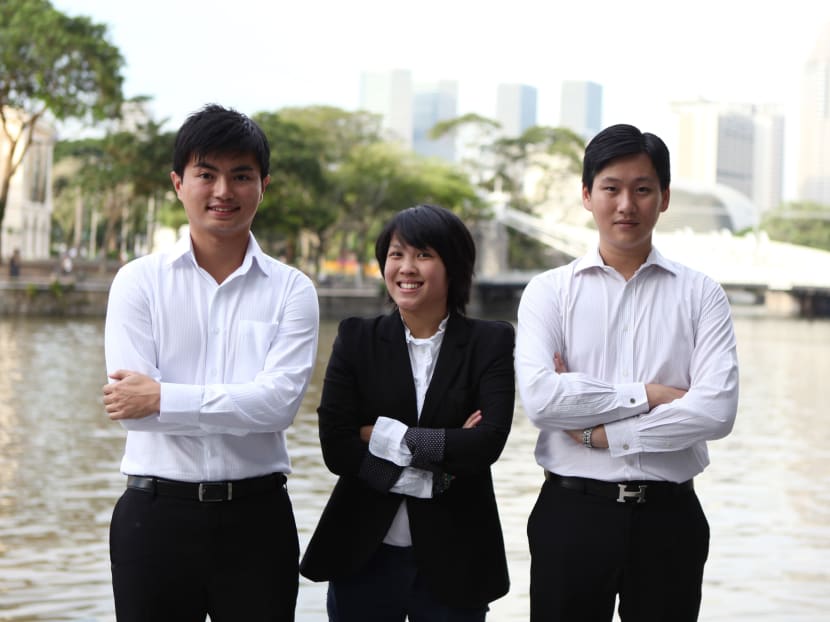
SINGAPORE — Mr Peter Goh and his co-founders started their business, Chloros Solutions, after spotting a gap in the market, while 8 Fahrenheit’s Mr Tan Song Jie wanted to help financially disadvantaged students, having come from a similar background. For founders of 90s — The Candy Studio, a partnership between their school and Bugis Street Management gave them the opportunity to kick-start their social enterprise. The young entrepreneurs share their experience setting up their business, and the challenges they had to overcome along the way.
8 FAHRENHEIT
For 20-year-old Tan Song Jie, social entrepreneurship was a path forged as much out of interest as it was out of necessity.
When he was in his second year at Ngee Ann Polytechnic, Mr Tan and two classmates, Ms Grace Goh and Ms Tan Jiahui, founded 8 Fahrenheit, an ice-cream parlour located within the school that employs students from financially disadvantaged backgrounds.
Coming from a single-parent family, Mr Tan struggled to balance part-time work with his studies. The countless weekends spent selling ice-cream door-to-door stayed with him, as did his determination to forge his own path in business.
“I know and see the need of (financially disadvantaged students) and so I have to do something,” said the social entrepreneurship and business major graduate.
“I don’t want others who are from financially disadvantaged backgrounds to go through the same thing,” he said. Setting up an ice-cream parlour felt like a natural extension from his days of knocking on doors to sell the cool treat.
It was not easy in the early days. “I had to survive for seven months without income to work on the business, I ate seven months of chicken rice and instant noodles,” Mr Tan said.
The trio started off by selling ice-cream at events last year, and launched their physical store in March.
Out of the S$12,000 used to start the business, S$3,000 came from the schools’ Enterprise Connect fund, and the rest came from the trio’s savings. “For start-ups, normally you can expect not to draw any income for the first six months to one year — it’s a lot of hard work,” he said.
8 Fahrenheit now hires 13 students, all of whom he employed after understanding their backgrounds on a case-by-case basis.
One additional bonus: The students have complete flexibility in working hours, meaning they do not have to skip classes for work.
“Unlike other start-ups, social enterprises have a double bottom line: to do good and earn money, both equally important,” he said.
90s – THE CANDY STUDIO
On the other side of the island, three 20-year-olds from Nanyang Polytechnic (NYP) founded 90s - The Candy Studio last year – a delightfully decorated candy store bringing back their childhood snacks.
“We’ve always wanted to start our own business, it was just a matter of time, but I’d never expected to do so immediately after graduating from poly,” said Ms Lim Yi Jun, one of the founders.
But, a partnership between NYP and Bugis Street Management gave the founders the opportunity they needed to kick-start their social enterprise. And they landed themselves a little space on the third floor of the Bugis street market, with first year rental waived. They now have a second branch at *SCAPE Underground.
Stepping into the shop, the most eye-catching things are not the candy but the signs hanging around the necks of staff members, informing customers they are hearing-impaired.
“The perception people have is that they cannot do as much, and so they are always paid differently from others — we’re trying to prove that they can do as much as we can,” said Ms Siti Khairunissa.
“Some people think we’re just running this business to help the less privileged, but that is not our only objective, we need to grow our business as well, because only then can we help even more people,” she added.
Crediting their school and teachers for helping them, the three entrepreneurs said that the start-up process was mostly smooth-sailing. One of the main challenges was learning to work with the hearing-impaired, and to find ways to help them do their job better.
Their advice to others considering entrepreneurship: “When you’re still young, you have time and you don’t have much to lose, you don’t have family to support, it’s the best time to start a business — with proper planning that is.”
CHLOROS SOLUTIONS
Inspiration struck Mr Peter Goh after he watched a Discovery Channel documentary on the greenest homes in the world.
“I asked myself: If I were home owner, and wanted to go green, what will I do? And I realised I didn’t have answer to that question,” he recounted. And so, with two classmates from the National University of Singapore, Ms Rebekah Lin and Mr Melvin Chen, he created Chloros Solutions in 2010 to provide the answer to his question.
The idea was to create a one-stop hub for consumers looking to go green – beginning from consultancy on how to do it to the contracting of actual works.
He remembers the close watch they kept on their expenses when starting up, even with a S$50,000 grant under SPRING Singapore’s Young Entrepreneur Scheme – now replaced by the Action Community for Entrepreneurship Startup Grant. For instance, when marketing their service, the group went door-to-door to personally sell their service to homeowners.
Looking back, Mr Goh acknowledged that it was difficult, but he was too engrossed in the moment to notice. “Being able to start this company is really a good way for me to crystallise my dreams, it’s like raising a child, even if you feel tired you won’t complain because it’s worth it,” he said.
He recalled how happy he was when he first registered Chloros as a company online, and a message saying “Congratulations you’re now a director of the company” popped up.
“I wouldn’t consider us successful yet, but I’m a very stubborn person, and if I decided to start business, I’ll keep going on regardless of the hurdles that come in the way,” Mr Goh said.





